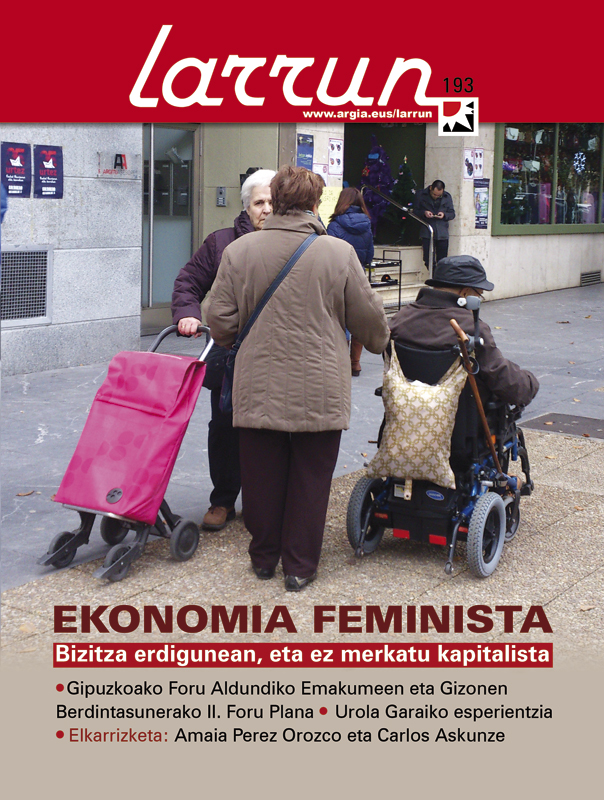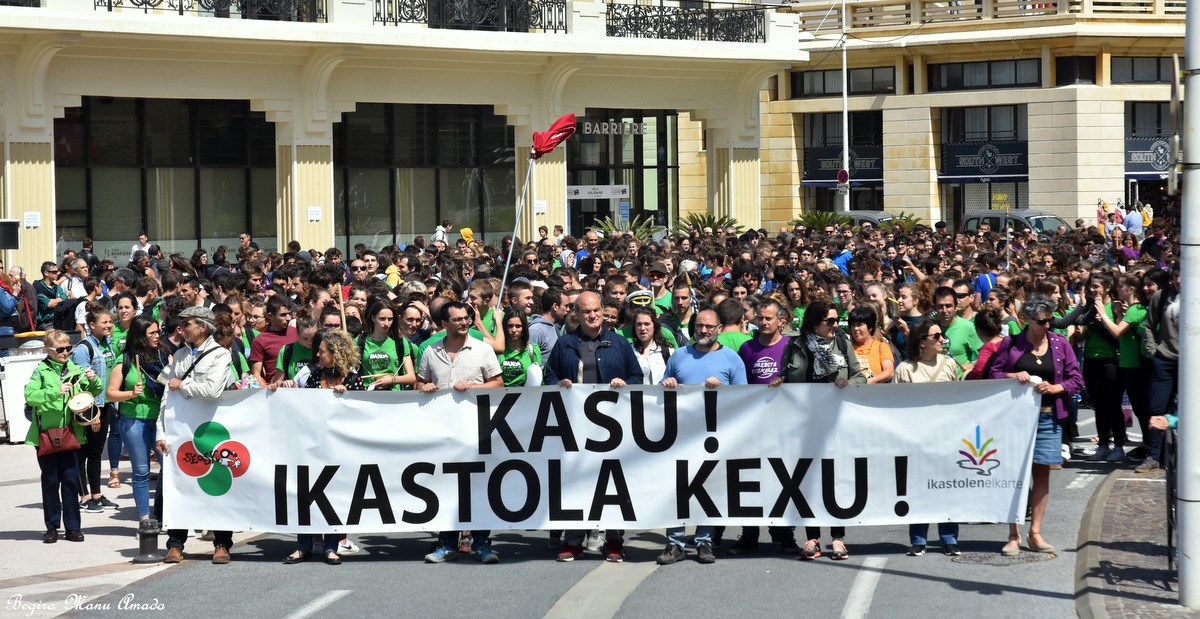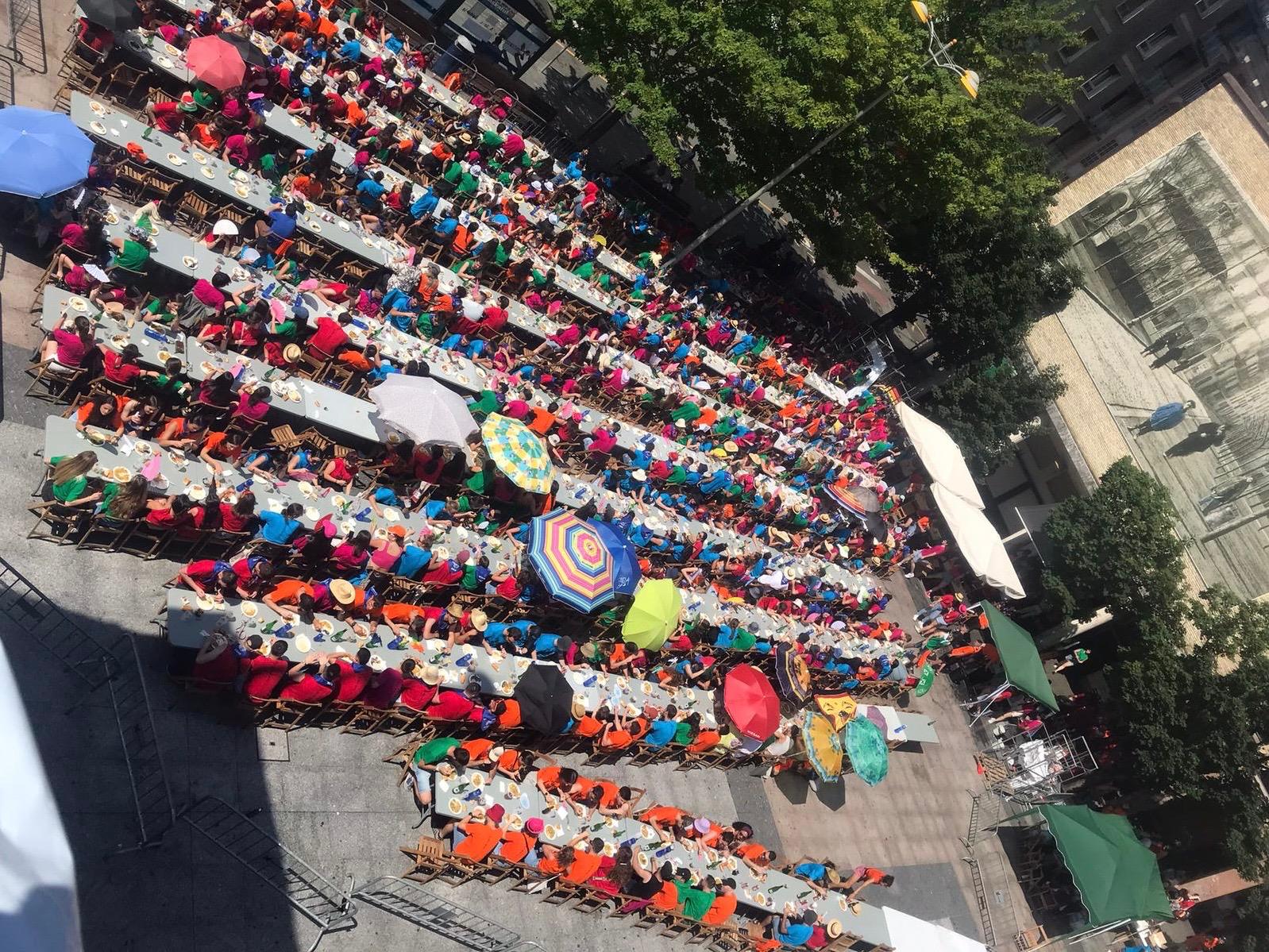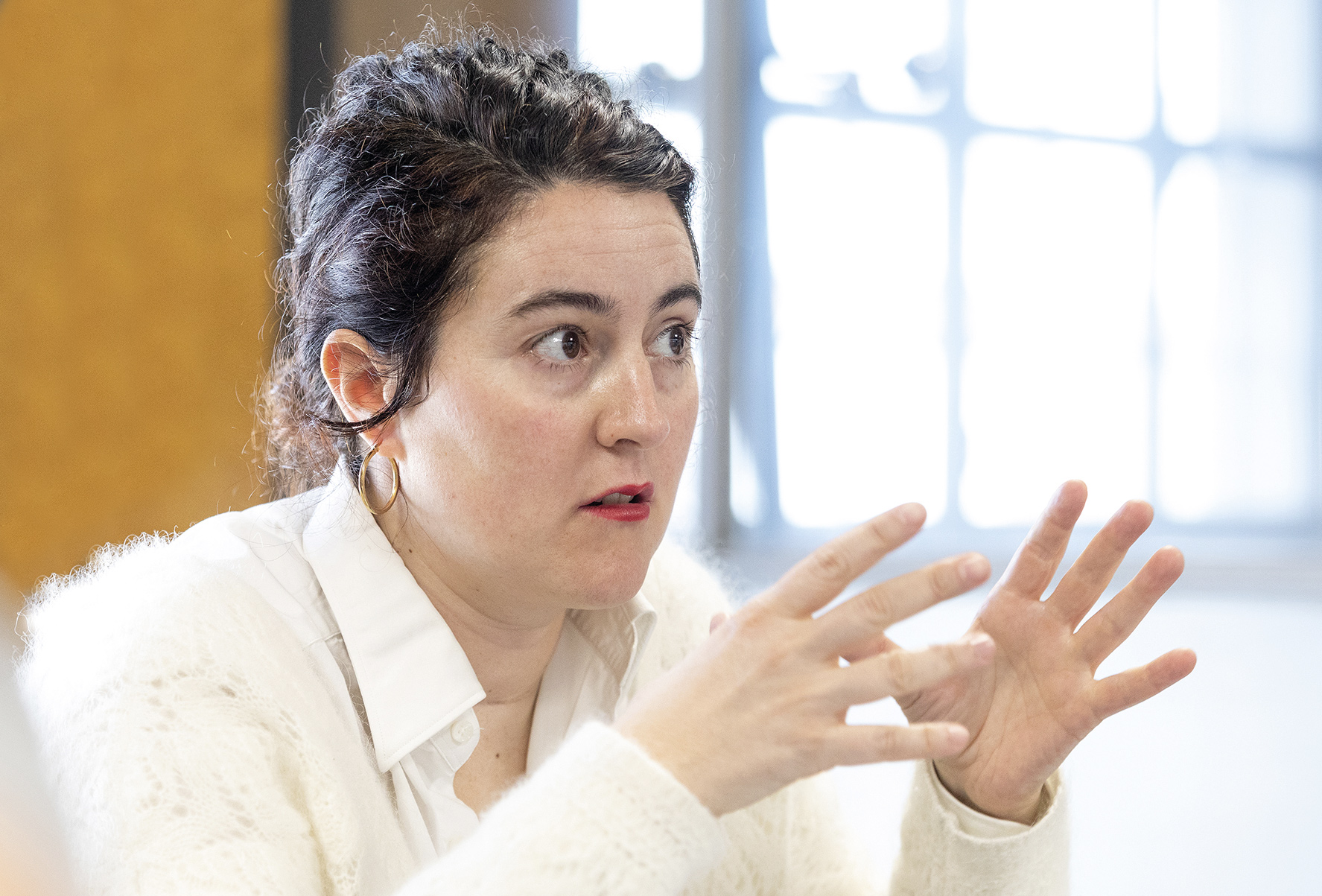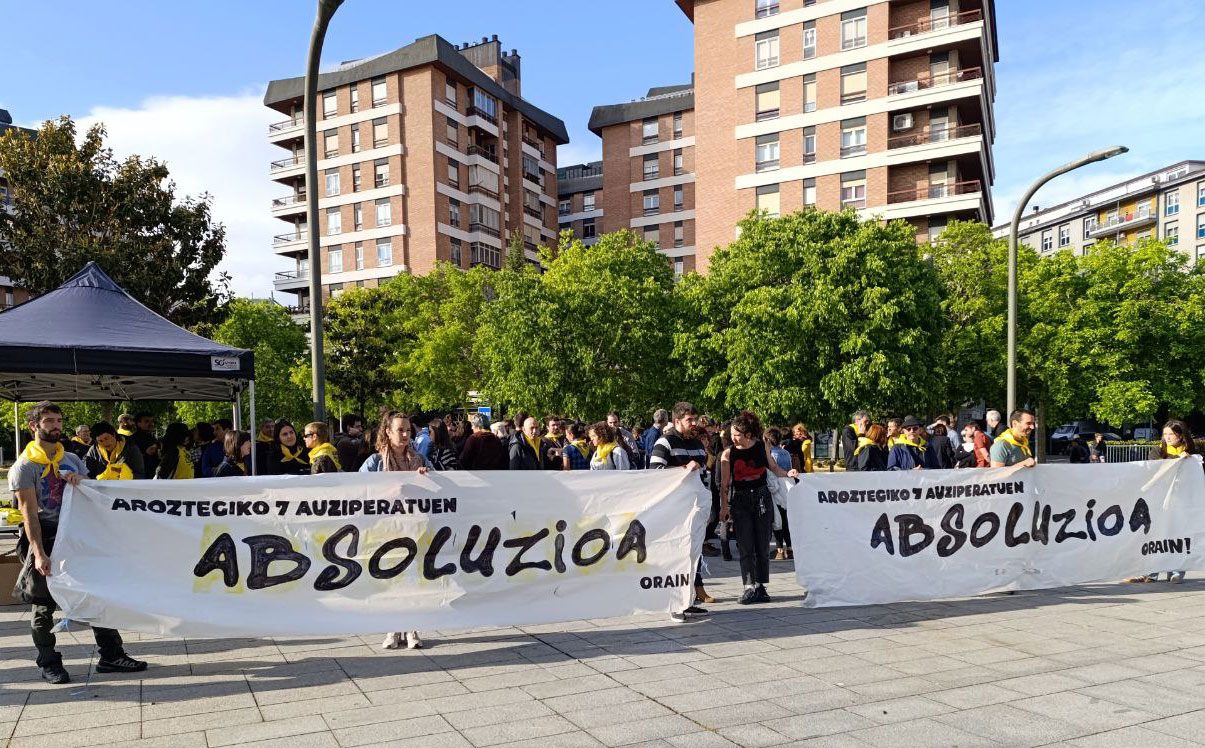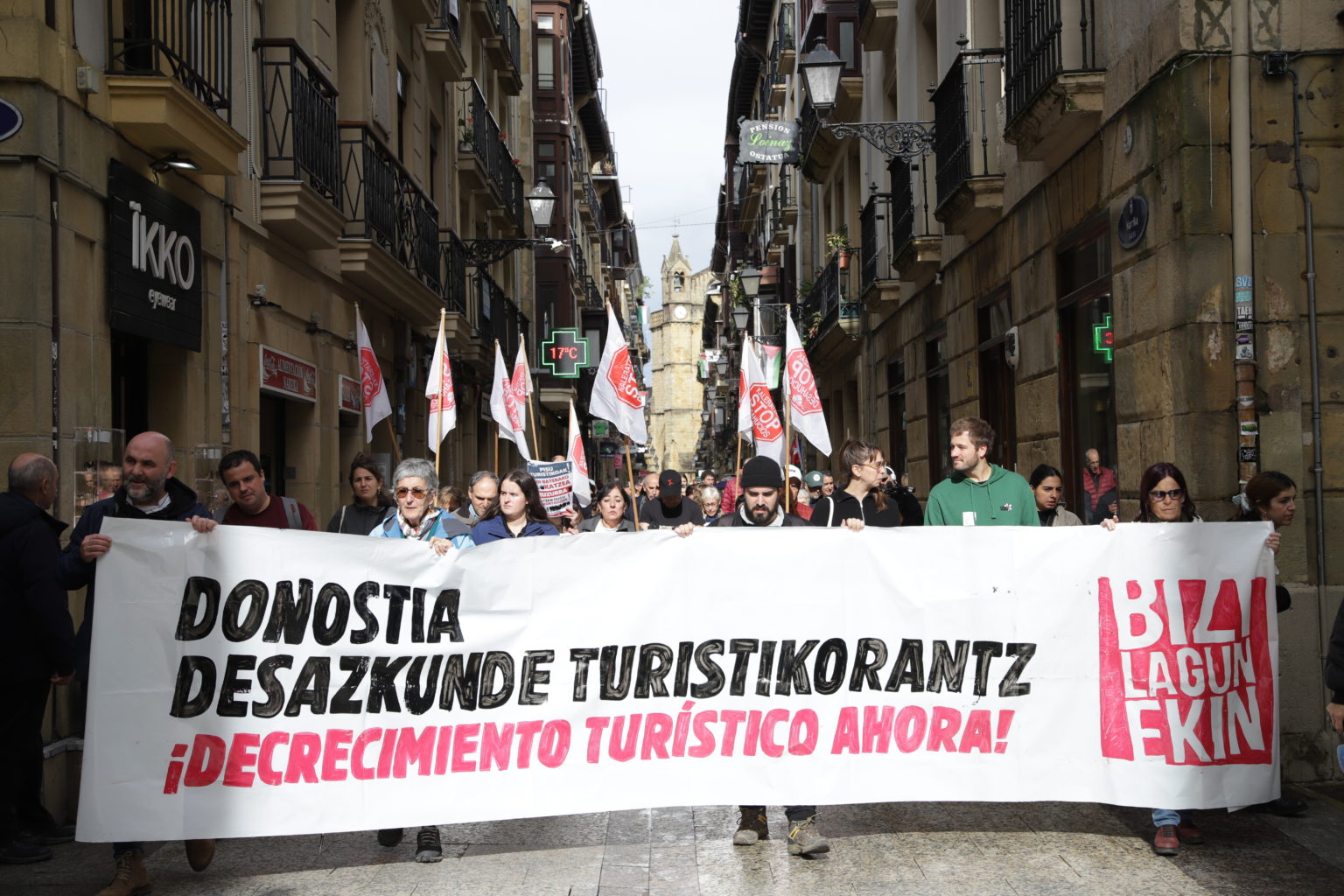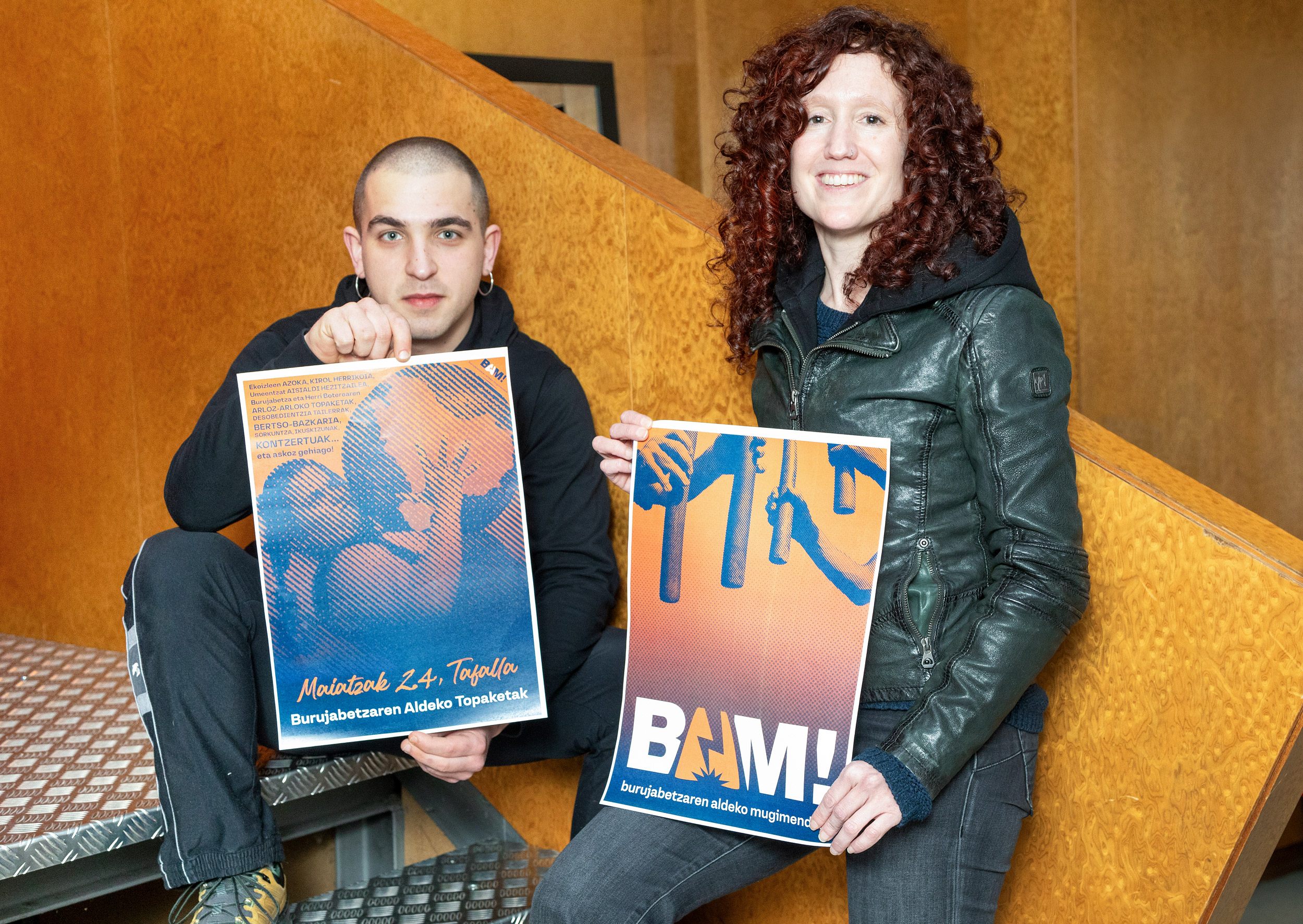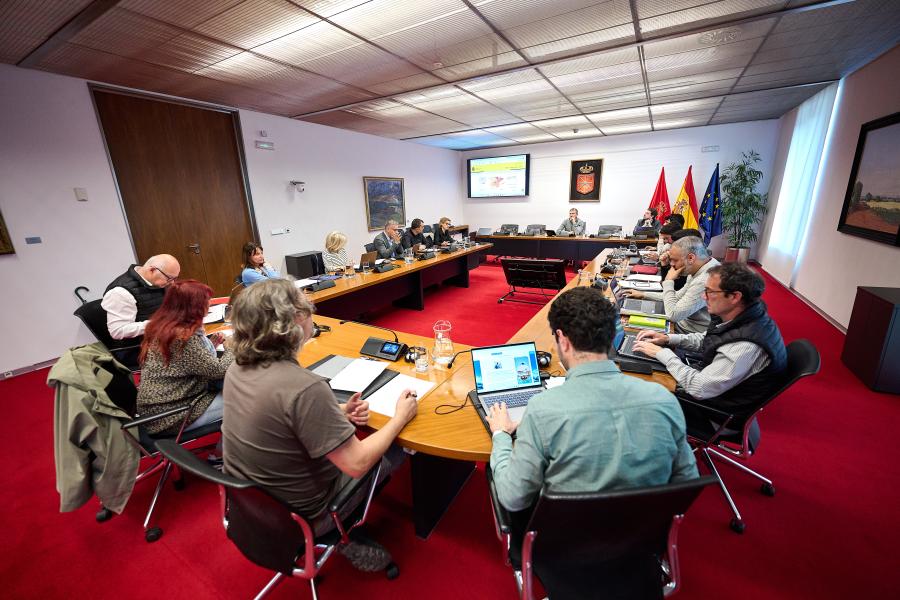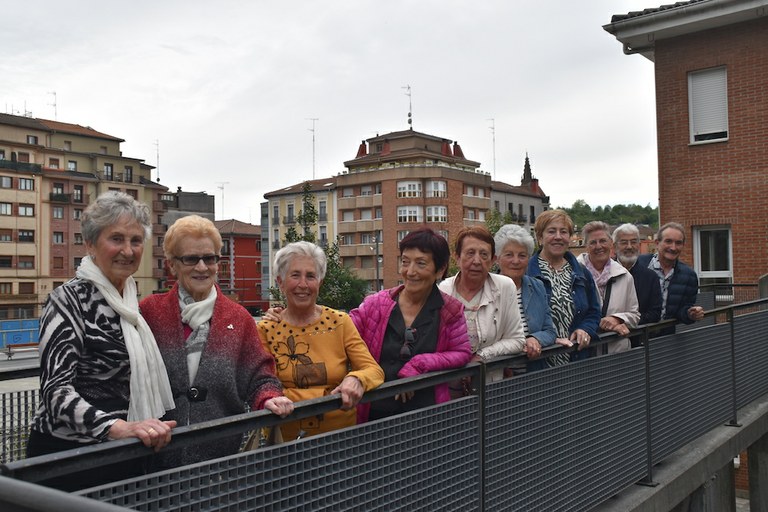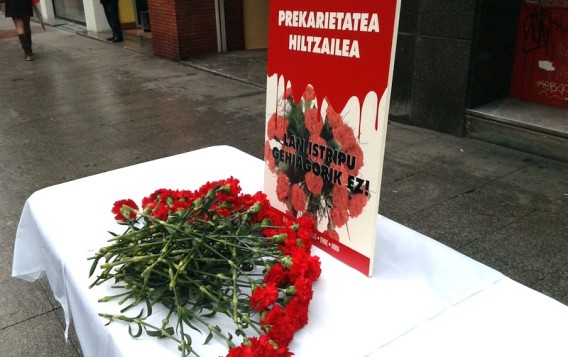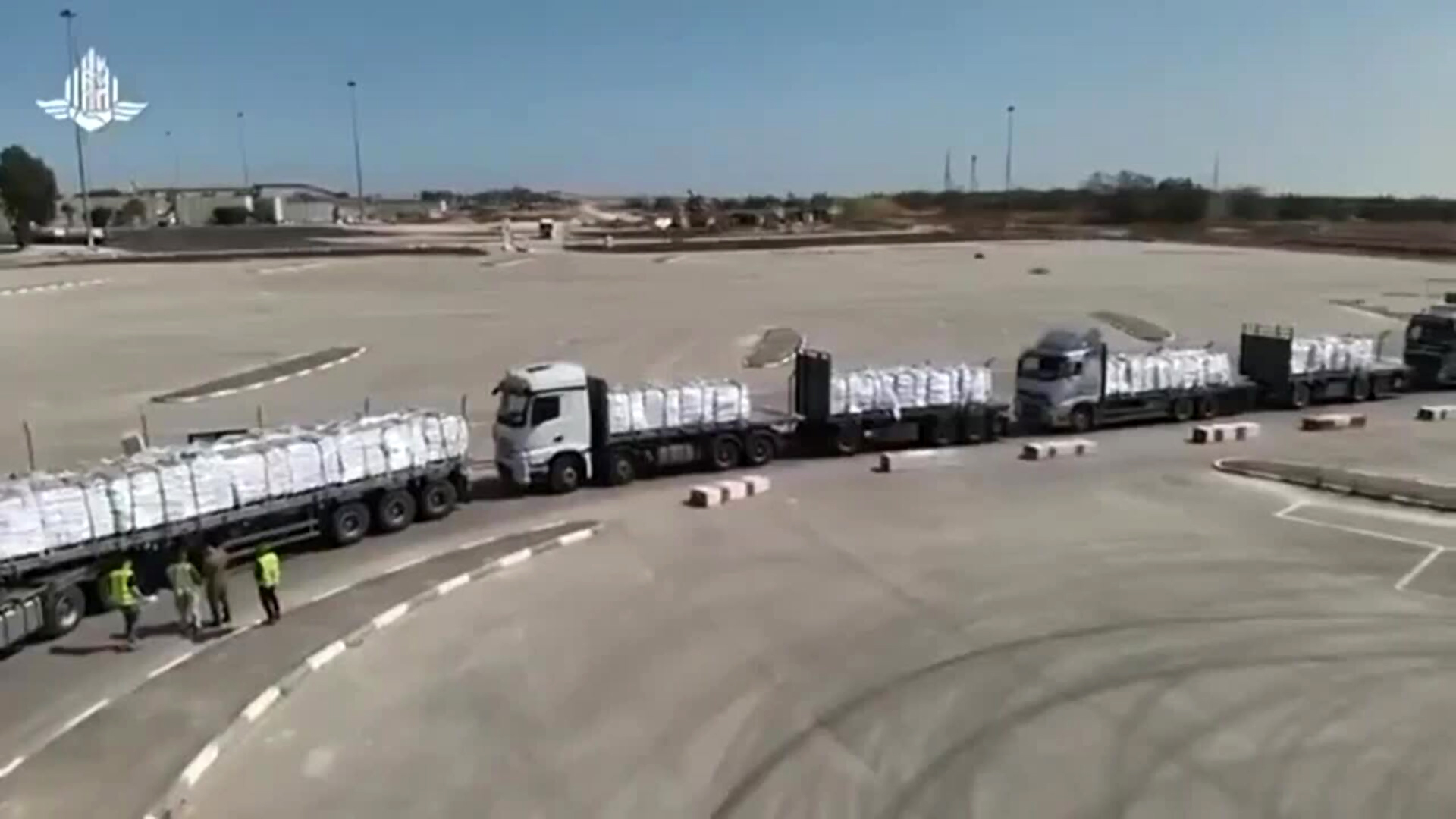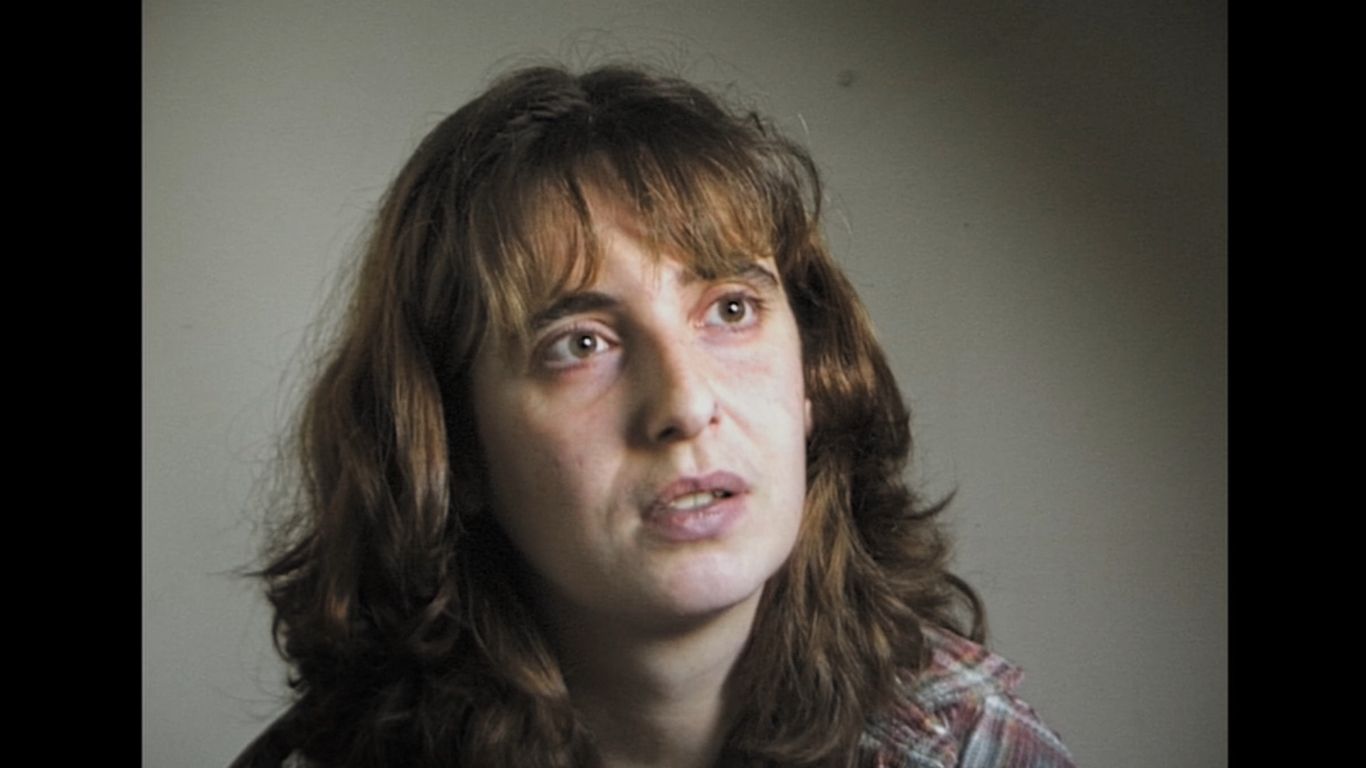Awareness of oppression before working on economic alternatives
- The Urla Garaia Community Empowerment School has three groups: migrant women, family caregivers and victims of violence. They develop processes of appropriation before economic alternatives.
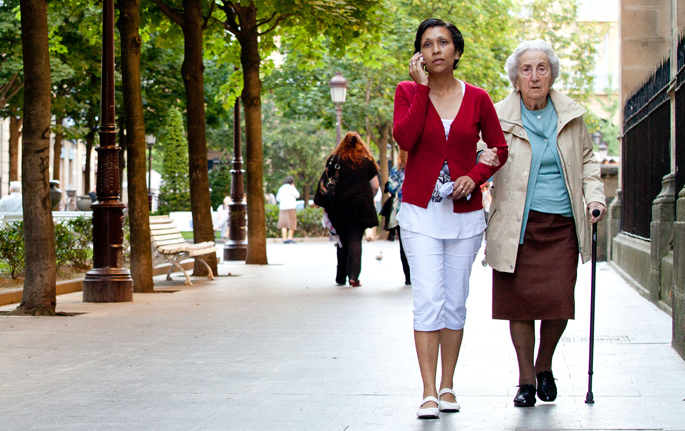
The women of Legazpi, Zumarraga, Urretxu and Ezdox-Itsaso meet at the school of empowerment. The equality technician in this Gipuzkoan region is Aurora Iturrioz. The groups mentioned have begun to ask how the feminist economy materializes and to talk about processes of empowerment, awareness and identity reconstruction. What does each other have to do with each other? “For example, those who are caring for a relative have to realize how the current model of care work maintains the capitalist structure. We tried to prove it.” Economic alternatives have to be made, but they have realised that there are other jobs to be done. Today's economic system has concretely created the identities of these women. Their self-esteem is weak, without leisure time. Therefore, they develop processes of empowerment from identity, and the next step is to try to materialize economic alternatives that make the lives of these women better. It's a long-term job.
Fire, group of immigrants
They do surveillance work here. Surveillance tasks have been delegated to other people, many of whom have been abandoning boys and girls. The monitoring work is managed from here. They feel guilty about having left children. Economic resistance initiatives have been launched:
Exchange: The barter is used on a day-to-day basis, but there has also been a market of barter for the people.
Basket: Depending on the needs of someone in the group, they leave that in the basket: food, winter coat…
Draw: Suppose you bought a EUR 2 soap. Each of the twelve members of the group contributes one euro. The draw is made and the winner receives the soap. The money left over is given to those who need it.
Savings fund: Each puts EUR 10 a week and once a week one takes EUR 90. It's a way of saving together.
Time bank: The intention is to launch it, but according to Aurora Iturrioz, the takeover process has yet to take longer.
Microcredit: The system began to be used, but it was suspended. The group put on the table the capitalist symbolism. So they started: every week a fee was set and when someone needed money (e.g., buying glasses) it was given to him, with the condition that he would return. However, the money saved was intended to open an account and make a profit. Microcredits were canceled. They reflect on how to create alternatives that don't integrate the capitalist characteristics that we have in the imaginary. Iturrioz believes that the appropriation process should be lengthened and that, perhaps later, they will be able to re-create the microcredit system.
In the processes of appropriation, it is attempted that capitalist systems realize the oppression that affects them. However, this awareness can also have harsh consequences. In these processes, one learns to negotiate and although many immigrants professional carers have managed to improve their working conditions, others have lost their jobs.
Family caregivers
The women who participate in this group take care of someone in the house. They lack the resources to hire a professional caregiver. If they had economic capacity, they would hire the women of the group we mentioned earlier. This group also attempts to show the extent to which surveillance works maintain the capitalist structure. Women are in a very precarious economic situation and in a very unfavourable emotional situation.
In the area of surveillance, in the negotiations for the distribution of tasks or decision-making, there are power relations. In these relationships emerge violence, psychological or physical violence, and a third type of violence that is not seen so easily: care is not shared and is already directed towards women.
“Learning to love us” Group
These are women who have suffered or are suffering violence. No economic alternatives have been put in place. Women have very weak self-esteem and the processes of empowerment are very long. The economic dimension appears transversally in this group. On the one hand, they suffer from economic abuse. They don't have direct income, and they depend on their partner in that sense. On the other hand, they are in a situation of psychological weakness, to which it is virtually impossible for them to embark on a path towards economic independence.
Washingtonen Israelek duen enbaxadako bi langile tiroz hilda agertu eta gero egin ditu adierazpenak Netanyahuk. Israelgo Gobernuak zuzenean lotu ditu Washingtongo erasoak eta Europako zenbait gobernuburuk Gazako sarraskiaren aurka egindako adierazpenak.
Mireia Centeno Gutierrez psikopedagogoak haurren elikaduraren inguruko zenbait gako eman ditu; hala nola jatera behartzeak eta jakiak debekatzeak dituen ondorioak aipatu ditu.
The defendants testified on Thursday, and their statements could be summarized as follows: The citizens who gathered in the square of legumes or in the camping area decided collectively what to do, in general, to go to the field of the works and put them passively in... [+]
Historically, a court of the Spanish Monarchy passed the following resolution: "The officers in charge of the custody of Iratxe Sorzabal applied electrodes to force him to testify, which constitutes a flagrant violation of his fundamental human rights." In other words, after the... [+]







